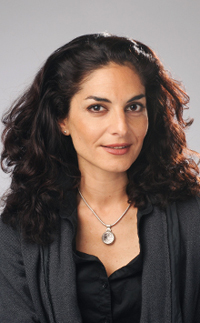
Prof. Sévane GARIBIAN
Principal Investigator
University of Geneva
Faculty of Law
Département de droit pénal
Office 3038
Bd du Pont d'Arve 40
CH-1211 Genève 4
Sévane Garibian holds a PhD in Law from the Universities of Paris-Nanterre (Paris X) and Geneva. She is an SNF Professor at the Law Faculty of the University of Geneva (UNIGE, 2016-2022), where she was nominated as a Full Professor in 2022. She is also an Adjunct Professor at the Law Faculty of the University of Neuchâtel (UNINE) and an Associate Researcher at the Institut de recherche interdisciplinaire sur les enjeux sociaux (EHESS / CNRS, Paris). At UNIGE, she is currently a member of the steering committee of the Centre d'étude, de technique et d'évaluation législatives and of the scientific board of the Maison de l'Histoire. She is also a member of the Commission de recherche of UNINE. She was co-beneficiary of an ERC Consolidator Grant (2012-2016) for the European research project "Corpses of Mass Violence and Genocide" and an associate member of the research project "Connecting Legal and Psychological Aspects in the Search for Victims of Enforced Disappearance in Colombia, El Salvador and Mexico" (SNIS Grant 2018-2020). Sévane Garibian regularly (co-)organizes scientific events and research trips, including fieldwork. She is the author of numerous publications and (co-)director of several multilingual collective volumes (see list of publications).
From 1998, she taught in several fields of Public Law and in Introduction to Political Sciences in France (Universities of Versailles-Saint-Quentin and Paris X). In Switzerland (UNIGE / UNINE), she currently teaches in International Criminal Law, Transitional Justice and Philosophy of Law. She is also a Faculty member at the Geneva Academy for International Humanitarian Law and Human Rights. She is regularly invited to teach (Summer Schools, CAS, Masters, seminars) in other academic institutions in Switzerland and internationally.
Her work focuses mainly on the forms, meanings and functions of law in relation to State-sponsored crimes, and explores plural justice mechanisms (traditional / alternative, judicial / extrajudicial, international / national). During her doctoral research, she studied the connection between the right to punish and the State in a particular configuration: that which emerges in the shift from a protective State to a criminal State. Later, she became interested in the relationship between law, history, science, memory and truth in the legal treatment of contemporary mass crimes and of their traces and legacies, their denial and their memorialization. In this research project, she questions the right to truth, the State obligation to investigate associated with it and the obstacles to their implementation in situations of mass crimes impunity. She also initiates work on the legal status of human remains and the law of the dead.